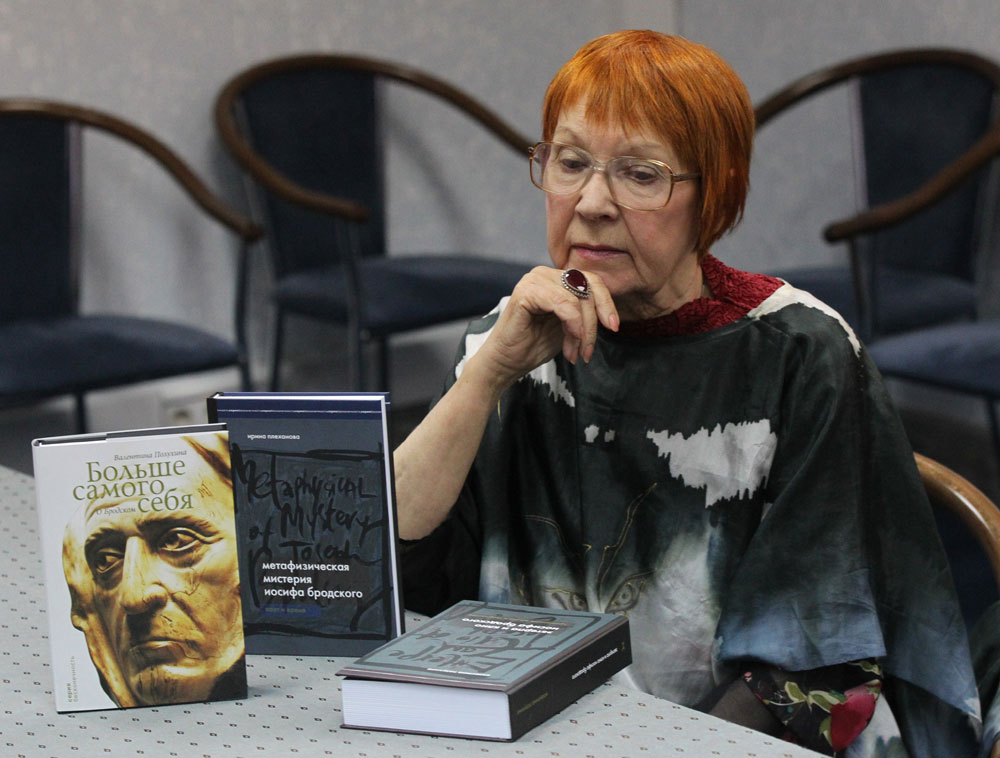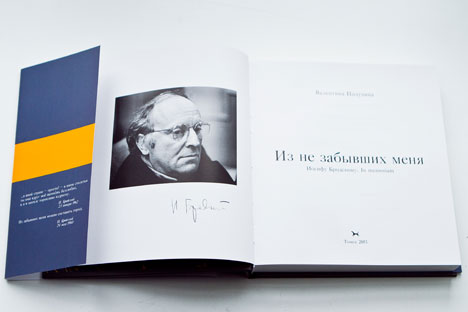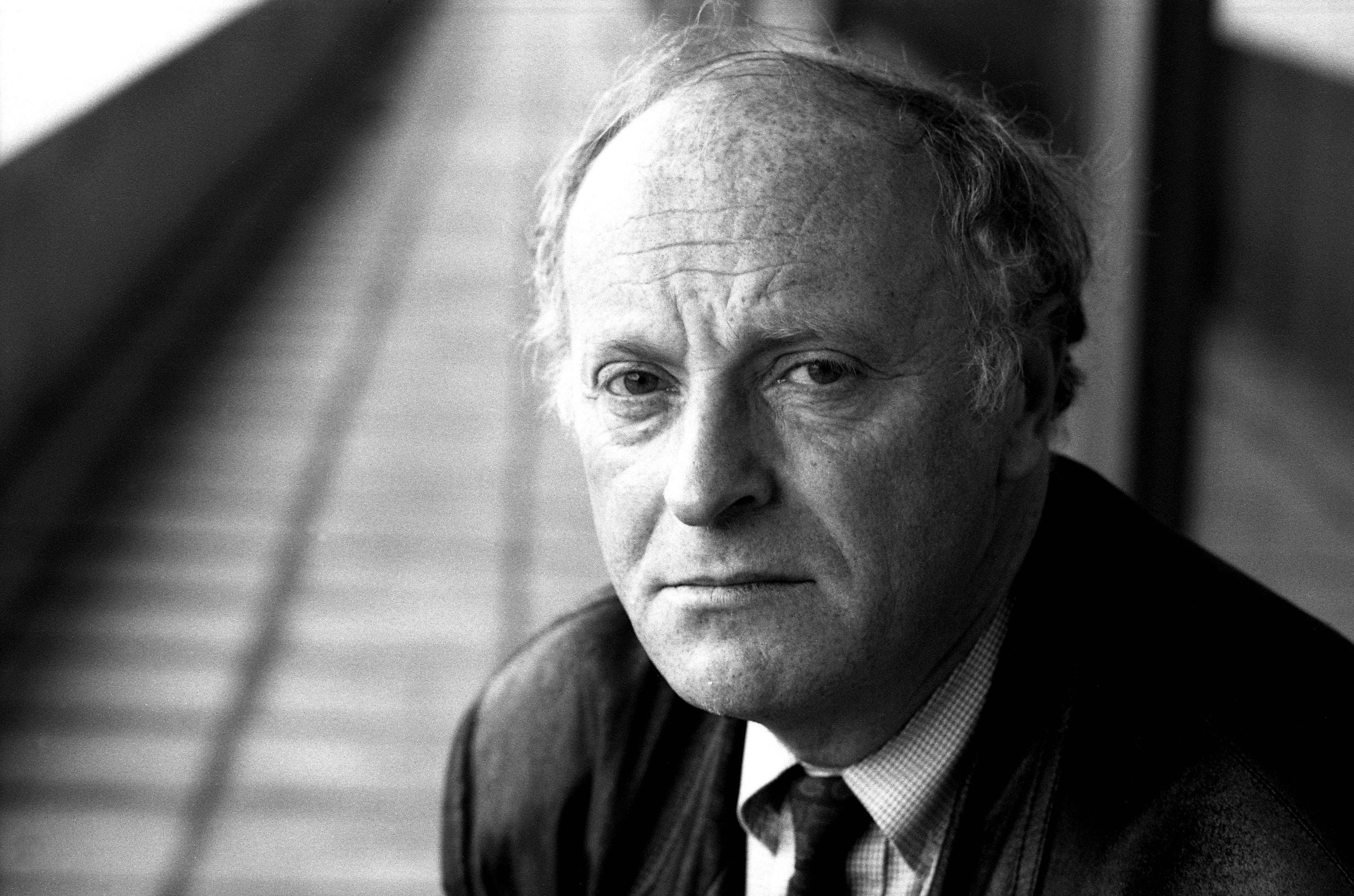Celebrating a tireless champion of Joseph Brodsky's poetry

Valentina Polukhina.
Alexander Korolkov / RGThere are numerous Joseph Brodsky experts, but the scale of Valentina Polukhina's work in this field eclipses them all. She has interviewed nearly 100 of the world's best-known poets, writers, translators, scholars, artists, filmmakers and philosophers who knew Brodsky, were friends with him and understood the value of his poems and essays. The result was three books, collectively called Brodsky Through the Eyes of his Contemporaries. They are fascinating reading for anyone who is interested in Brodsky and his texts.
There is more to Valentina Polukhina than this, however. She was friends with Brodsky and he held her research in high regard. He frequently visited London, loved the city and often stayed with Polukhina and her husband Daniel, a Brodsky translator. This cozy house in the north of the British capital has long been a driving force in Brodsky research, producing numerous texts on his life and work.I also stayed with Daniel and her. I was admitted into the holy of holies – Valentina Platonovna's small study on the second floor, completely filled with shelves of books by and about Brodsky in different languages, with dozens of rare photographs of the poet hanging on the walls. Brodsky himself once visited this study. He looked at the walls with an ironic smile and said, in didactic fashion: "You're still missing a photograph, Valentina. The one of me as a baby lying on the couch without pants."
She tried to take care of him in every possible way when he was alive and came to London. Now she takes care of his and daughters and granddaughters, who also visit her welcoming home. I could not resist asking her a highly insolent question: whether she was sure she did not exaggerate Brodsky's importance.
Her reply was as follows:
"As you know, Alexander Pushkin brought French poetry to Russia. This is understandable: French was the mother tongue of the Russian aristocracy at that time. But neither Pushkin nor the poets who followed him took anything from the rich English poetry except, perhaps, Byron's romantic image of the poet. Joseph Brodsky did all of this two centuries later. This is a huge contribution to Russian poetry, literature, culture, and, finally, language. Russian needed this contribution, this new blood and it got it thanks to Brodsky. If he had not done anything besides this, he deserves a monument for this contribution alone."
After a pause, she continued: "But you know, I sometimes feel that Brodsky was the Russian language's deliberate choice."
"What do you mean by that?" I replied with surprise.
"Well, if you follow Joseph's own logic," she said, "language is something given to us from above, a certain entity that is both deeper and more extended in time than man, or even mankind. Here let us assume that this enormous living being – the Russian language – matures to the point where it needs a poet who can help record contemporary language in a perfect form – who can open up possibilities for the language's future development. And this language chooses a small Jewish boy in an anti-Semitic country, knowing that he will suffer; it breathes poetry into him, knowing that in this country a true poet either dies or is exiled. It lets him survive, become famous and fulfil the mission entrusted to him..."Valentina Platonovna Polukhina turned 80 on June 18. If it was up to me, I would bestow the most important Russian award on her in recognition of her services to Russian literature; in recognition of bringing the greatest Russian poet's personality and poetry to a Russian readership.
Yury Lepsky is the first deputy editor-in-chief of Rossiyskaya Gazeta and a renowned Brodsky researcher. The article was first published in Russian by Rossiyskaya Gazeta.
All rights reserved by Rossiyskaya Gazeta.
Subscribe
to our newsletter!
Get the week's best stories straight to your inbox

